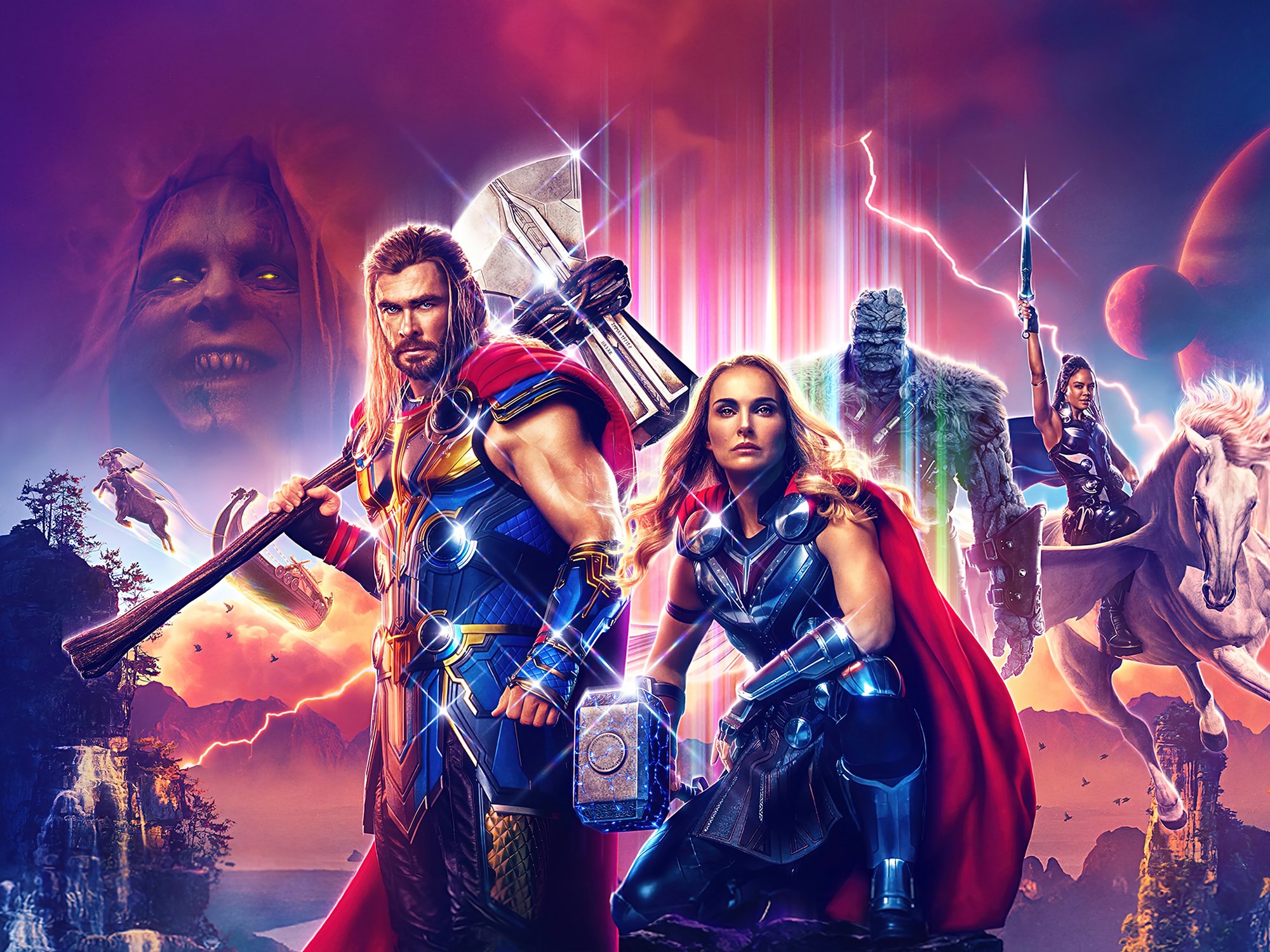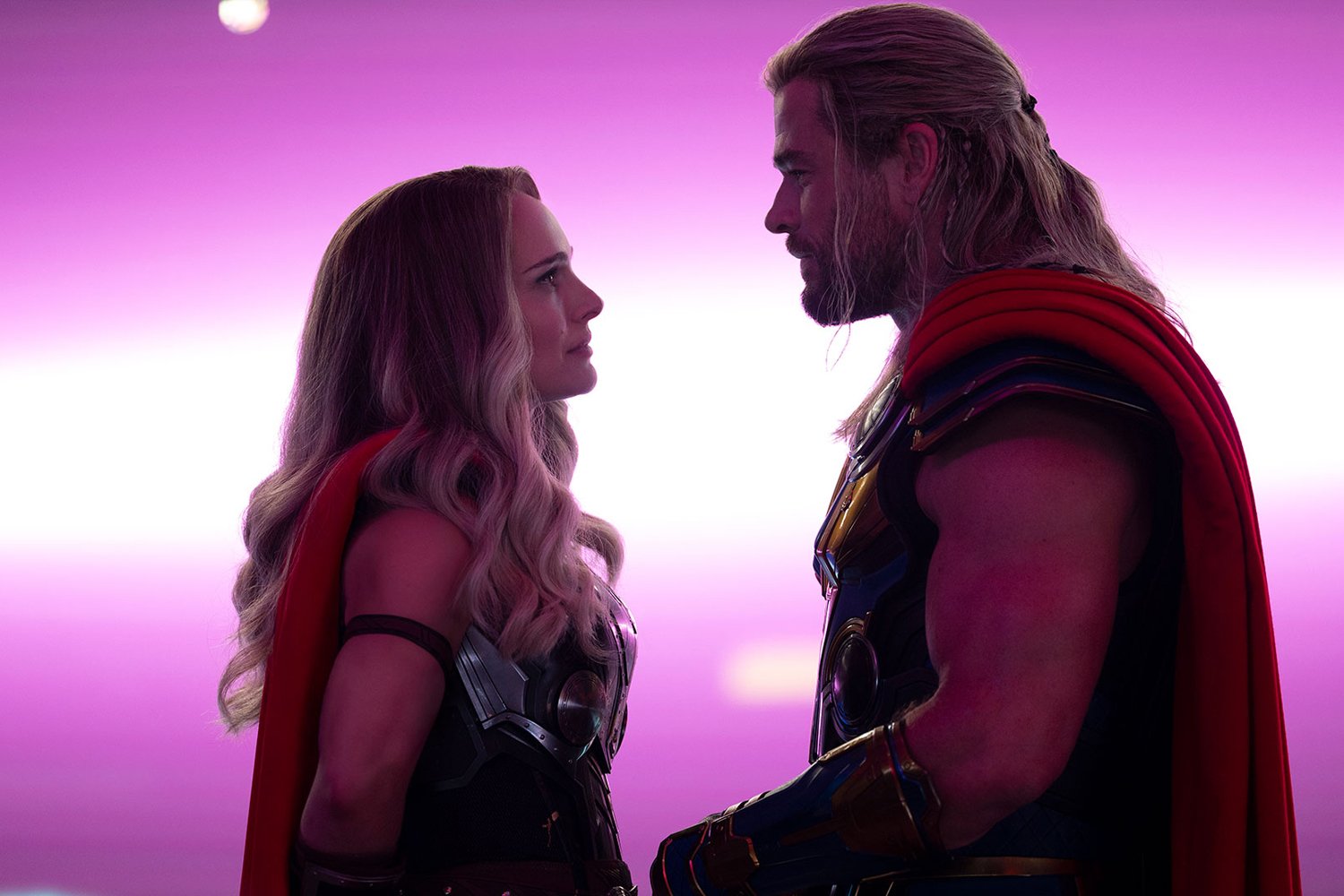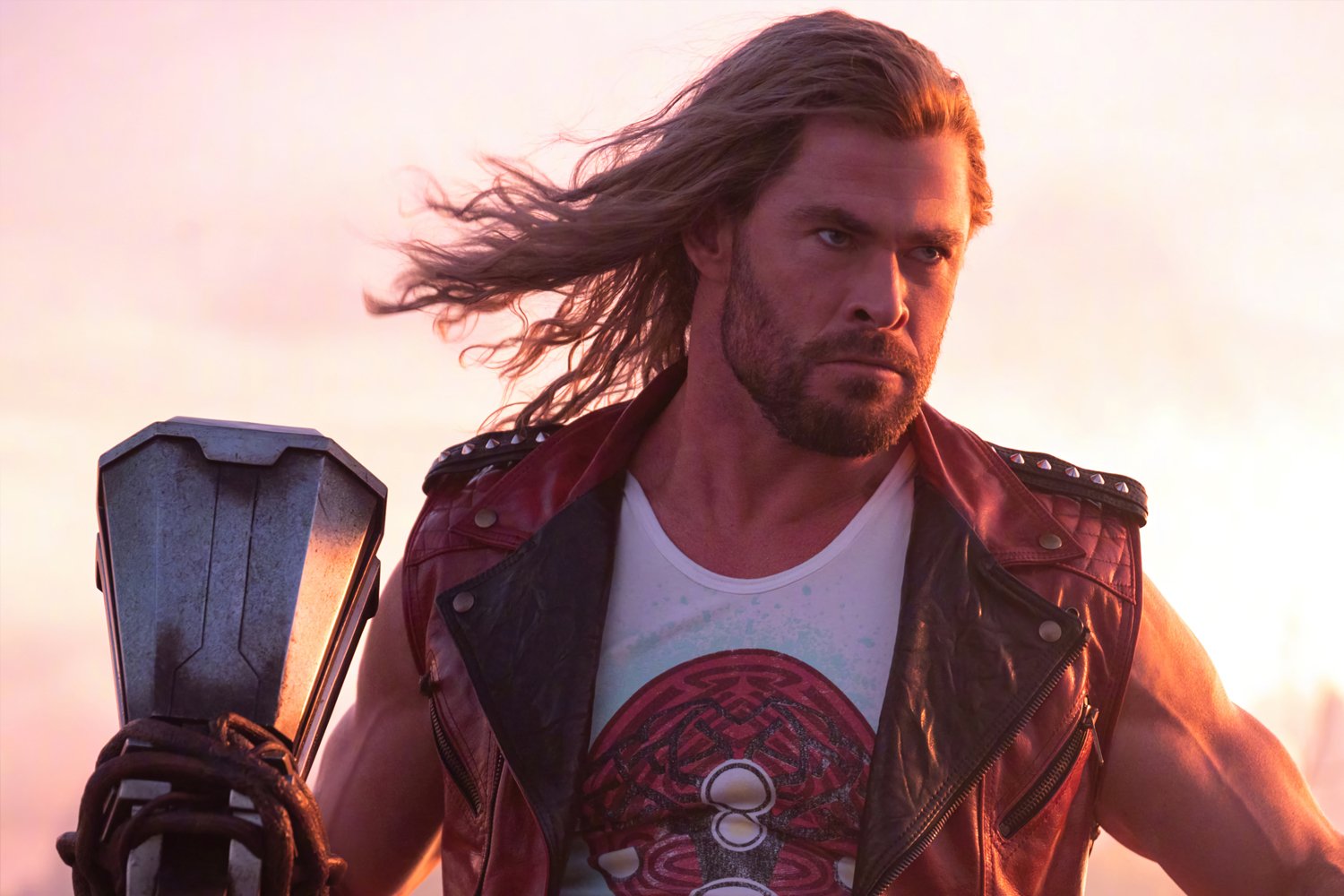Film Review — Thor: Love and Thunder
Taika Waititi’s Ragnarok redux gives Marvel’s Phase Four a respite
Thor: Love and Thunder — for better or worse — is Ragnarok redux, down to its goofy lark humor and its undercooked A-list star as villain. But even with its superhero comedy dialed up to eleven and struggle with tone, its fleet adventure feels like a tonic, free from multiverses, cameos, and the seemingly requisite MCU buildup to the next “thing.” It’s one of the stronger Phase Four entries. Minor spoilers ahead…
Five years ago with 2017’s Thor: Ragnarok, Taika Waititi finally struck equilibrium with the Marvel Cinematic Universe’s most confused and unwieldy character: Thor Odinson. Realizing that the God of Thunder’s cosmic roots, noble cadence, and himbo vanity are inherently silly, Waititi tapped into the full potential of an unlikely combination: Chris Hemsworth’s rippling physique and his - at the time - underutilized comedic prowess. Ragnarok was lightning in a bottle, giving one of the dullest Avengers a punch in the arm where Kenneth Branagh and Alan Taylor couldn’t, and with elements that Joss Whedon could only touch upon with the crowded Avengers films.
Thor: Love and Thunder is essentially Ragnarok redux, for better or worse; after all, it would seem frivolous to toss out a formula already proven so winsome. Cranking every element of its predecessor to eleven, Odinson’s latest adventure is a severe case of “your mileage may vary.” The jokes - many recycled - fire bigger and faster, its colorful bombast more prevalent and manufactured, and its big A-list actor villain even more underutilized. But Love and Thunder, against all odds, feels like a refreshing tonic amidst Marvel’s increasingly wobbly and underwhelming Phase Four: Free of the multiverses, cameos, and wanton flexes of corporate synergism that seemed to define Spider-Man: No Way Home and Doctor Strange in the Multiverse of Madness, Thor: Love and Thunder brings fleet, burden-free fun in a standalone adventure that harkens back to brighter days.
“Thor: Love and Thunder is essentially Ragnarok redux, for better or worse; after all, it would seem frivolous to toss out a formula already proven so winsome.”
Love and Thunder opens with Waititi’s Korg-narrated catch-up with Thor (Hemsworth) and his post-Endgame adventures with the Guardians of the Galaxy. Thanos is vanquished and New Asgard is a tourist haven in the hands of King Valkyrie (Tessa Thompson), so the newly re-muscled God of Thunder fills out his existence with layup adventures; Thor is as unstoppable as ever, but he’s also never been emptier, meditating to an Enya needle drop over his two lost loves: Jane Foster (Natalie Portman) and his shattered hammer Mjolnir. It’s funny enough because the sequence is sandwiched between Love and Thunder’s two heaviest elements pulled from Jason Aaron’s far-superior run on the Thor comics, introducing a tonal whiplash that the film never really figures out how to balance. As Thor goofs with his Guardian compatriots, a humble and pious believer named Gorr (Christian Bale doing the most as the undercooked baddie) cradles his dead child in his hands before swearing oozing, black vengeance upon the deities that have forsaken him; elsewhere, Jane Foster battles Stage Four cancer before a last-ditch effort for a cure leads her to the broken pieces of Mjolnir and a newfound calling as the Mighty Thor.
With New Asgard next on Gorr’s hit-list, it’s up to Thor to team up with a newly superpowered Jane, journeying through the cosmos - and to the corners of adjacent mythologies - to thwart the God Butcher. While the stakes at first glance seem to be as obtusely large as most superhero yarn these days, there’s something refreshing about Love and Thunder relegating its big bad to the sidelines. Christian Bale milks as much menace as he can with a committed rictus grin (a living reminder of how underutilized Cate Blanchett was in Ragnarok), but the focus remains on Thor, his weighty ennui, and his doomed romance with Jane; it’s a huge change-up from two whole films crammed with cameos, doing nothing at all with a much-touted multiverse concept. And while many might bristle against Waititi’s increasingly throwaway sense of humor, the jokes in Love and Thunder land more often than not, served with an undercurrent of tenderness that’s become a director signature. There’s your typical goofiness that wears thin quickly (you can only have screeching goats as your punchline so many times), but there’s also stuff in there that’s a perfect fit for Hemsworth’s uncanny comedic timing: A running gag of how cruel Thor is with children pays off delightfully, and a fast-paced montage of Thor and Jane’s earthly history distills their entire relationship with wit and heartbreak.
“While the stakes at first glance seem to be as obtusely large as most superhero yarn these days, there’s something refreshing about Love and Thunder relegating its big bad to the sidelines.”
It’s astounding to point out that 2019 only had three Marvel projects while the last year-and-a-half has had 19. With the MCU’s recent spate of storytelling, there’s been grumblings - and rightfully so - about the lack of visual polish on these movies, undoubtedly from a gargantuan expansion of IP dominance that has perhaps gotten too big for its britches. Love and Thunder isn’t exactly immune from the same criticism - some of the lazy compositing here is as much of an eyesore as the worst of these movies - but Waititi’s eye-popping colors, stage-like comedy, and camp-adjacent stylings help dull the pain of shoddy artifice. It also helps that there’s still some dazzle left in the VFX tank: A melee in Zeus’ (Russell Crowe, hamming it up) palace is crisp and bright with its fodder spewing gilded splatter as Thor, Jane, and Valkyrie dispatch them, and a third act battle atop a tiny monochrome planet is an impressive flex of dormant creative muscles. If anything, it all sure as hell beats three Spider-Men swinging against a brown background.
Where Ragnarok painted Thor as beleaguered underdog in a fight for his freedom, Love and Thunder aims for the more spiritual trappings of reflection; Taika Waititi, it seems, is better equipped for the former rather than the latter when it comes to the God of Thunder. But despite its struggle to balance the deadly serious with the irreverently lark, the latest Thor adventure feels like a bright spot and a rare breed within a superhero space being crushed by homework, setup, and the gravitation towards stories that love to scream: “Look who it is!” At 119 minutes, Love and Thunder plays to its strengths, largely unconcerned with the corporate treadmill, and in a phase where the Marvel Cinematic Universe seems to be battling for its own soul, it feels like a much needed respite.













